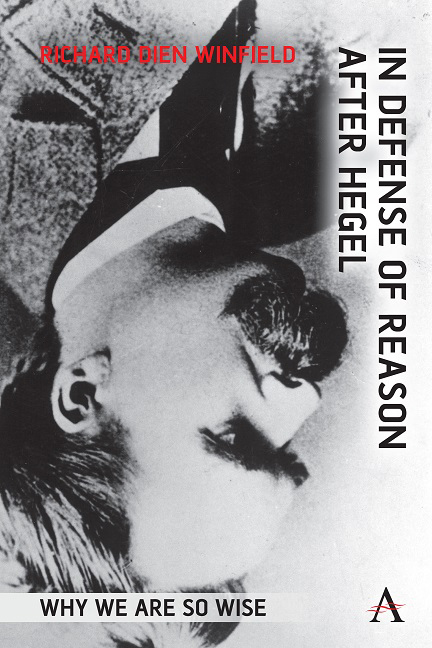Book contents
- Frontmatter
- Contents
- Acknowledgments
- Introduction
- 1 Why We Are So Wise: Hegelian Reflections on whether Reason Can Be Enhanced
- 2 Self-Determination in Logic and Reality
- 3 Hegel’s Overcoming of the Overcoming of Metaphysics
- 4 On Contradiction: Hegel versus Aristotle, Sextus Empiricus, and Kant
- 5 Overcoming Actuality: How Hegel Frees Us from the Prison of Modality
- 6 Time and Reason
- 7 Hegel and the Problem of Consciousness
- 8 Hegel and the Origin of Language
- 9 The Logic of Right
- 10 A Dream Deferred: From the US Constitution to the Universal Declaration of Human Rights
- 11 World Spirit on the Campaign Trail in Georgia: Can the Philosophy of Right Be a Guide to Social Reform?
- 12 The Classical Nude and the Limits of Sculpture
- Bibliography
- Index
3 - Hegel’s Overcoming of the Overcoming of Metaphysics
Published online by Cambridge University Press: 26 May 2022
- Frontmatter
- Contents
- Acknowledgments
- Introduction
- 1 Why We Are So Wise: Hegelian Reflections on whether Reason Can Be Enhanced
- 2 Self-Determination in Logic and Reality
- 3 Hegel’s Overcoming of the Overcoming of Metaphysics
- 4 On Contradiction: Hegel versus Aristotle, Sextus Empiricus, and Kant
- 5 Overcoming Actuality: How Hegel Frees Us from the Prison of Modality
- 6 Time and Reason
- 7 Hegel and the Problem of Consciousness
- 8 Hegel and the Origin of Language
- 9 The Logic of Right
- 10 A Dream Deferred: From the US Constitution to the Universal Declaration of Human Rights
- 11 World Spirit on the Campaign Trail in Georgia: Can the Philosophy of Right Be a Guide to Social Reform?
- 12 The Classical Nude and the Limits of Sculpture
- Bibliography
- Index
Summary
What is metaphysics? Is it the study of being qua being, that foundational ontology with which philosophy must begin to obtain the universal wisdom grounding knowledge of all particular domains? Or is metaphysics the entirety of synthetic a priori knowledge, where reason obtains new knowledge relying on thought alone? Or is metaphysics simply the enterprise of knowing things in themselves, searching for conceptual determinations in the given cognition confronts, certain of the correspondence of thought and being?
Each of these projects of metaphysics has come under withering attack so as to leave us in a post-metaphysical predicament. The alleged outcomes of those attacks have, however, all been called into question by arguments developed by Hegel. Has Hegel thereby rehabilitated metaphysics? Or has Hegel left us a systematic philosophy without metaphysics?
The Repudiation of Foundational Ontology and Its Hegelian Critique
The critique of foundational ontology has its great pioneer in Kant, whose transcendental turn proceeds from the seemingly irrefutable insight that beginning philosophy by conceiving being takes for granted the authority of philosophical knowing. Insupportable dogmatism cannot be avoided if one begins by making claims about what is without first examining knowing and establishing cognition's ability to know objects. Foundational ontology must accordingly cede first philosophy to epistemology. The knowing of knowing should be the preliminary undertaking of philosophical investigation and only if and when foundational epistemology secures some authority for cognition can philosophy turn to investigate what is.
This might seem to reprieve metaphysics by allowing ontology to operate after epistemology. Kant's own transcendental philosophy, however, shows that making epistemology primary can only make sense if the object of knowing is determined by the structure of knowing. Unless this is the case, knowing has no way of determining the objectivity of its claims, for immediate access to being is precisely what is called into question by the transcendental turn away from foundational ontology. Yet, if knowing can know its objects only insofar as they are at least in part determined by the structure of knowing, objectivity becomes something posited by knowing. Instead of being determined in and through itself, objectivity is subject to an external necessity of efficient causality, for all objects are conditioned by the same structure of cognition, no matter what they are.
- Type
- Chapter
- Information
- In Defense of Reason after HegelWhy We Are So Wise, pp. 47 - 58Publisher: Anthem PressPrint publication year: 2022



